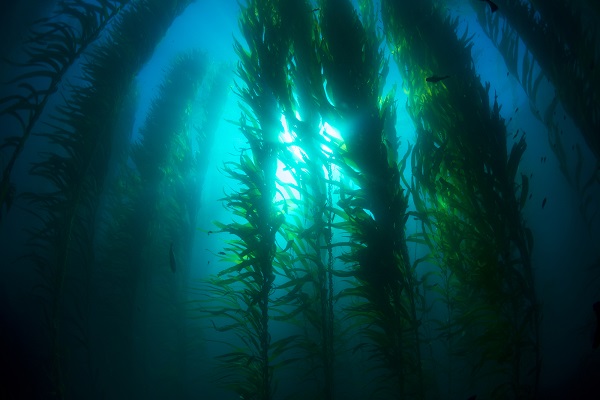Scotland Takes a Stand Against Destructive Kelp Dredging

The Scottish Government has just voted against a proposal to allow mechanical dredging of kelp forests off the coast of the Western isles.
The controversial proposal to industrialise Scotland’s natural kelp forests has been in the pipeline for many years. Marine Biopolymers, the company behind it, argued that the dredging and processing of the kelp would be environmentally sensitive, create local jobs and contribute to the Scottish economy. But public reaction against the dredging proposal was strong and included a hefty petition and some superstar backers including naturalist Sir David Attenborough and author Alexander McCall Smith.
On the strength of a comprehensive strategic environmental assessment the Scottish government took the view that the risks simply outweighed the benefits.
At first glance this may seem like a local issue but harvesting the ocean – as part of a new global ‘bioeconomy’, based on exploiting the renewable resources on land and sea – raises important issues of biodiversity, climate breakdown, carbon storage, stewardship, restraint, conservation of natural resources and, the ongoing need for a less ‘anthropocentric’ view of the purpose of living systems.
Booming business
Seaweeds have been foraged and wild harvested by hand for centuries. In island nations and coastal communities they are the basis of thriving cottage industries and a nutrient-rich natural food source.
Recent decades have seen more and more seaweed being mechanically harvested to produce extracts such as agar, carrageenan and alginate used as thickening and gelling agents in processed foods such as ice creams and dairy based drinks and powders.
But seaweeds also have industrial applications in the production in animal feed, fertiliser, cosmetics, health supplements and pharmaceuticals. They are also used in the production of industrial polymers, chemical compounds used to make strong, flexible fibres, plastics and plastic-like materials. Seaweeds and microalgaes are also being used to produce biofuels – though the energy efficiency of this process remains questionable.
This new ‘blue economy’, based around sea plants, is expected to more than double to a global value of $9 billion by 2024. But as with land-based industrial agriculture, this kind of booming growth comes at a price.
Ecosystem disruption
Kelp forests are found in cool water environments around the world and are important for marine biodiversity. They support a wide range of invertebrates, fish and birds. Marine mammals like otters and seals hunt in them and they act as nurseries for commercial fish and shellfish. Kelp as well as other seaweeds and sea grasses are also vital carbon sinks.
There is no agreed measurement of sustainability and the true ecological consequences of exploiting kelp habitats are not well evaluated. Whilst kelp is particularly resilient and can grow back, studies show that conditions need to be optimal. Indeed globally kelp forests are under threat from climate breakdown and its impacts on our oceans.
While small scale, artisanal, hand cutting or picking of wild seaweed has no significant adverse environmental impacts, over time industrial scale operations certainly will.
Evidence from as far back as the 1990s suggests that kelp plants that regrow after dredging are smaller and weaker. In this state they continue to be useful – even beneficial – for industrial processing, but their ability to thrive and to support the same broad ecosystem may be compromised.
Indeed, while dredged kelp may grow back within 4-6 years, it can take many more years for populations of invertebrates, fish and other animals to re-establish themselves. In some cases large populations of sea urchins, which naturally graze on young kelp shoots, can move in and their continual grazing may prevent full regrowth of the kelp.
There are impacts on local food webs as well. A 2010 Norwegian study found that kelp dredging resulted in lowered numbers of juvenile cod, which shelter amongst the kelp forests, and a detrimental effect on cormorant populations.
Is there a better way?
While some environmentalists believe we can save the oceans by farming them, others are more sceptical.
Groups like Greenwave believe that ‘regenerative’ principles, currently being applied in land-based farming, can also apply to seaweed and shellfish farming.
In places like California and Israel entrepreneurs are growing seaweeds in land-based tanks. This is one possible approach and may be a sustainable for smaller scale production. It remains to be seen whether scaling up will prove sustainable.
While the Scottish vote was cast in favour of conservation over exploitation, pressure to harvest the kelp fields there and elsewhere will grow.
Marine Biopolymers clearly believed it was fulfilling a need, for instance for bio-based body armour for the police and armed forces and for more slow-release drug delivery systems. But in taking the decision not to allow the dredging, the Scottish government is acknowledging that economics is not the only metric, and that there are still significant hurdles to overcome in the sustainable global cultivation of seaweeds.
- An edited version of this article appeared in The Big Issue, December 2018, or see here.












